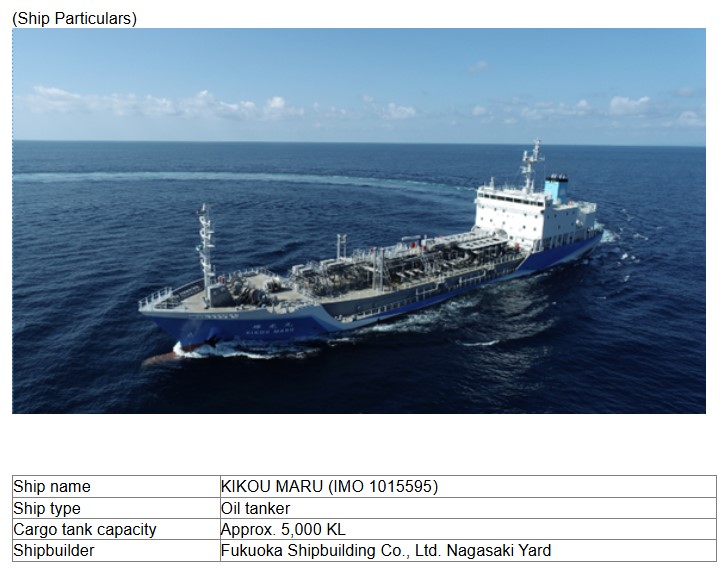First Hydrogen-Fueled Tanker Secures Top Rating

In a groundbreaking development for the maritime industry, the hydrogen-fueled oil tanker “KIKOU MARU” has received the highest rating of “S” under the Zero-Emission Accelerating Ship Finance Program. This initiative, a collaboration between the Development Bank of Japan Inc. (DBJ) and ClassNK, marks a significant milestone as it is the first time the program has been applied to a coastal vessel. The financing provided by DBJ will support Uyeno Transtech Ltd., the ship’s owner, in its mission to achieve zero emissions in marine transportation.
Innovative Design and Environmental Commitment
The “KIKOU MARU,” built at Fukuoka Shipbuilding Co., Ltd.’s Nagasaki Yard, is designed as a “hydrogen fuel ready” electric propulsion oil tanker. It is set to embark on one of the world’s first demonstration voyages using hydrogen fuel in 2026, as part of the Nippon Foundation’s “Zero Emission Ships” project. This initiative aligns with the shipping industry’s increasing focus on decarbonization amid tightening environmental regulations.
ClassNK’s evaluation of the tanker was based on a comprehensive scoring model that assesses decarbonization, environmental performance, and innovation. The ship’s design includes specialized hull structures to accommodate hydrogen fuel tanks, ensuring it meets necessary safety and operational standards. Additionally, the integration of lithium-ion batteries optimizes fuel consumption, further enhancing the vessel’s environmental credentials.
Hydrogen-fueled Vessel Wins AiP Towards Demonstration Operation
The “S” rating awarded to the “KIKOU MARU” signifies its exceptional commitment to reducing environmental impact and advancing sustainable practices within the shipping sector. This recognition highlights the significant investments made in environmental technologies and positions Uyeno Transtech as a leader in the transition towards a greener maritime industry.
As the Zero-Emission Accelerating Ship Finance Program expands, DBJ and ClassNK aim to bolster efforts within the shipping and shipbuilding sectors to facilitate a broader shift towards decarbonization, ultimately transforming the entire maritime landscape.
